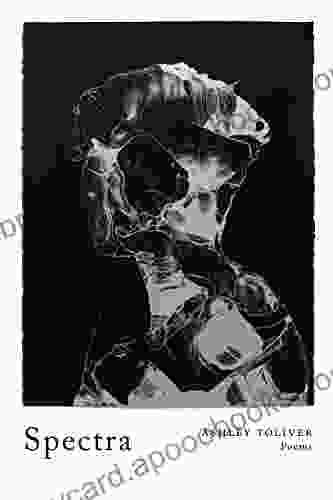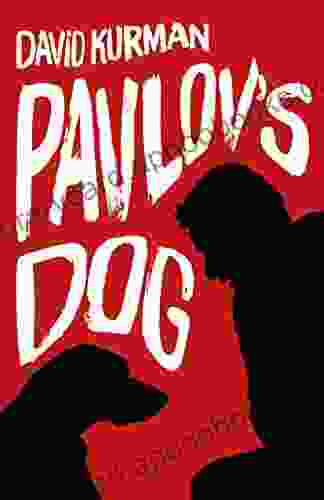Pavlov's Dog: The Science of Learning and Memory

4.5 out of 5
| Language | : | English |
| File size | : | 1052 KB |
| Text-to-Speech | : | Enabled |
| Screen Reader | : | Supported |
| Enhanced typesetting | : | Enabled |
| Word Wise | : | Enabled |
| Print length | : | 193 pages |
| Paperback | : | 544 pages |
| Item Weight | : | 1.1 pounds |
| Dimensions | : | 5.51 x 1.42 x 8.07 inches |
In the annals of science, few names are as synonymous with learning and memory as Ivan Pavlov. The Russian physiologist's Nobel Prize-winning research on classical conditioning revolutionized our understanding of how we learn and remember. Pavlov's famous experiments with dogs showed that animals can be conditioned to associate a neutral stimulus (such as a bell) with a reflex-eliciting stimulus (such as food). Over time, the neutral stimulus alone can elicit the reflex (such as salivation). This process, known as classical conditioning, is one of the most basic and well-established principles of learning.
Pavlov's work had a profound impact on the field of psychology. It provided the first scientific evidence that learning is not simply a passive process of accumulating knowledge, but rather an active process of forming associations between stimuli. Pavlov's research also laid the foundation for the development of behaviorism, a school of psychology that emphasized the objective study of observable behavior. Behaviorists argued that all behavior is learned, and that it can be controlled by manipulating the environment.
Pavlov's work has also had a significant impact on the field of education. His research on classical conditioning has helped educators to understand how students learn best. For example, educators have learned that it is important to pair new information with previously learned information. They have also learned that it is important to provide students with opportunities to practice what they have learned. Pavlov's work has also helped educators to understand the importance of feedback. Feedback provides students with information about their progress, and it helps them to correct their mistakes.
Pavlov's work continues to be relevant today. His research on classical conditioning has helped us to understand how we learn and remember. It has also helped us to develop new ways to teach and to learn. Pavlov's work is a testament to the power of science to improve our understanding of the world around us.
The Life of Ivan Pavlov
Ivan Pavlov was born in Ryazan, Russia, in 1849. He was the son of a priest, and he was raised in a religious household. Pavlov was a brilliant student, and he graduated from the University of St. Petersburg with a degree in medicine. After graduation, Pavlov worked as a physiologist at the Military Medical Academy in St. Petersburg. In 1890, he was appointed director of the Institute of Experimental Medicine, where he conducted his groundbreaking research on classical conditioning.
Pavlov was a meticulous scientist, and he conducted his experiments with great care. He was also a gifted teacher, and he inspired a generation of students to pursue careers in science. Pavlov was awarded the Nobel Prize in Physiology or Medicine in 1904 for his work on classical conditioning. He died in Leningrad, Russia, in 1936.
The Work of Ivan Pavlov
Pavlov's research on classical conditioning was based on the principle that animals can be conditioned to associate a neutral stimulus (such as a bell) with a reflex-eliciting stimulus (such as food). Over time, the neutral stimulus alone can elicit the reflex (such as salivation). This process is known as classical conditioning.
Pavlov's experiments with dogs showed that classical conditioning can be used to teach animals to respond to a wide variety of stimuli. For example, Pavlov's dogs learned to salivate in response to the sound of a bell, the sight of a white coat, and even the smell of food.
Pavlov's research on classical conditioning had a profound impact on the field of psychology. It provided the first scientific evidence that learning is not simply a passive process of accumulating knowledge, but rather an active process of forming associations between stimuli. Pavlov's research also laid the foundation for the development of behaviorism, a school of psychology that emphasized the objective study of observable behavior.
The Legacy of Ivan Pavlov
Ivan Pavlov is considered one of the most important figures in the history of psychology. His research on classical conditioning revolutionized our understanding of how we learn and remember. Pavlov's work has also had a significant impact on the fields of education and medicine.
Pavlov's legacy continues to inspire scientists and educators today. His work has helped us to understand how we learn and remember, and it has led to the development of new ways to teach and to learn. Pavlov's work is a testament to the power of science to improve our understanding of the world around us.
Recommended Reading
- Pavlov's Dog: A Memoir of Ivan Pavlov by Daniel P. Todes
- The Physiology of Conditioned Reflexes by Ivan Pavlov
- Classical Conditioning: A Primer by Donald A. Dewsbury
4.5 out of 5
| Language | : | English |
| File size | : | 1052 KB |
| Text-to-Speech | : | Enabled |
| Screen Reader | : | Supported |
| Enhanced typesetting | : | Enabled |
| Word Wise | : | Enabled |
| Print length | : | 193 pages |
| Paperback | : | 544 pages |
| Item Weight | : | 1.1 pounds |
| Dimensions | : | 5.51 x 1.42 x 8.07 inches |
Do you want to contribute by writing guest posts on this blog?
Please contact us and send us a resume of previous articles that you have written.
 Book
Book Novel
Novel Page
Page Chapter
Chapter Text
Text Story
Story Genre
Genre Reader
Reader Library
Library Paperback
Paperback E-book
E-book Magazine
Magazine Newspaper
Newspaper Paragraph
Paragraph Sentence
Sentence Bookmark
Bookmark Shelf
Shelf Glossary
Glossary Bibliography
Bibliography Foreword
Foreword Preface
Preface Synopsis
Synopsis Annotation
Annotation Footnote
Footnote Manuscript
Manuscript Scroll
Scroll Codex
Codex Tome
Tome Bestseller
Bestseller Classics
Classics Library card
Library card Narrative
Narrative Biography
Biography Autobiography
Autobiography Memoir
Memoir Reference
Reference Encyclopedia
Encyclopedia Amanda Siegrist
Amanda Siegrist Ibragim Kharaev
Ibragim Kharaev Troy Anthony Platt
Troy Anthony Platt Ana Elena Pena
Ana Elena Pena Ayman Hassan
Ayman Hassan Amy Wright
Amy Wright Kat Vellos
Kat Vellos Amber Valentine
Amber Valentine Julia Pazdro
Julia Pazdro Hazel Cutly
Hazel Cutly Turtle Bunbury
Turtle Bunbury Brittany Ann
Brittany Ann Ian Shapiro
Ian Shapiro Bonafide Rojas
Bonafide Rojas Larry Ferlazzo
Larry Ferlazzo Donald E Weatherbee
Donald E Weatherbee David Dobbs
David Dobbs Taras Kuzio
Taras Kuzio Andrea Bocelli
Andrea Bocelli Sean Casteel
Sean Casteel
Light bulbAdvertise smarter! Our strategic ad space ensures maximum exposure. Reserve your spot today!

 Andres CarterInto the Realm of Dragons and More: An Immersive Exploration of Tanya Allan's...
Andres CarterInto the Realm of Dragons and More: An Immersive Exploration of Tanya Allan's... Jacob HayesFollow ·13k
Jacob HayesFollow ·13k Ryūnosuke AkutagawaFollow ·12.9k
Ryūnosuke AkutagawaFollow ·12.9k Carter HayesFollow ·14k
Carter HayesFollow ·14k Chad PriceFollow ·11.5k
Chad PriceFollow ·11.5k Herman MitchellFollow ·2k
Herman MitchellFollow ·2k Deacon BellFollow ·15.2k
Deacon BellFollow ·15.2k Ron BlairFollow ·19k
Ron BlairFollow ·19k Ivan TurnerFollow ·18k
Ivan TurnerFollow ·18k

 Roald Dahl
Roald DahlImmerse Yourself in a Mesmerizing Tapestry of Creativity:...
Prepare to be captivated by "Spectra," an...

 Clarence Brooks
Clarence BrooksUnleash Your Inner Taylor with Red Piano Vocal Guitar:...
Embrace the Red Era...

 Jeffrey Hayes
Jeffrey HayesUnlock Your Child's Academic Potential: A Comprehensive...
In today's rapidly changing...

 William Golding
William GoldingBrave Elizabeth: A Captivating Tale of Resilience and...
Immerse Yourself in a Riveting Historical...

 Curtis Stewart
Curtis StewartUnveiling the Heartfelt Melodies of Taylor Swift: A...
Step into the enchanting world of Taylor...
4.5 out of 5
| Language | : | English |
| File size | : | 1052 KB |
| Text-to-Speech | : | Enabled |
| Screen Reader | : | Supported |
| Enhanced typesetting | : | Enabled |
| Word Wise | : | Enabled |
| Print length | : | 193 pages |
| Paperback | : | 544 pages |
| Item Weight | : | 1.1 pounds |
| Dimensions | : | 5.51 x 1.42 x 8.07 inches |












